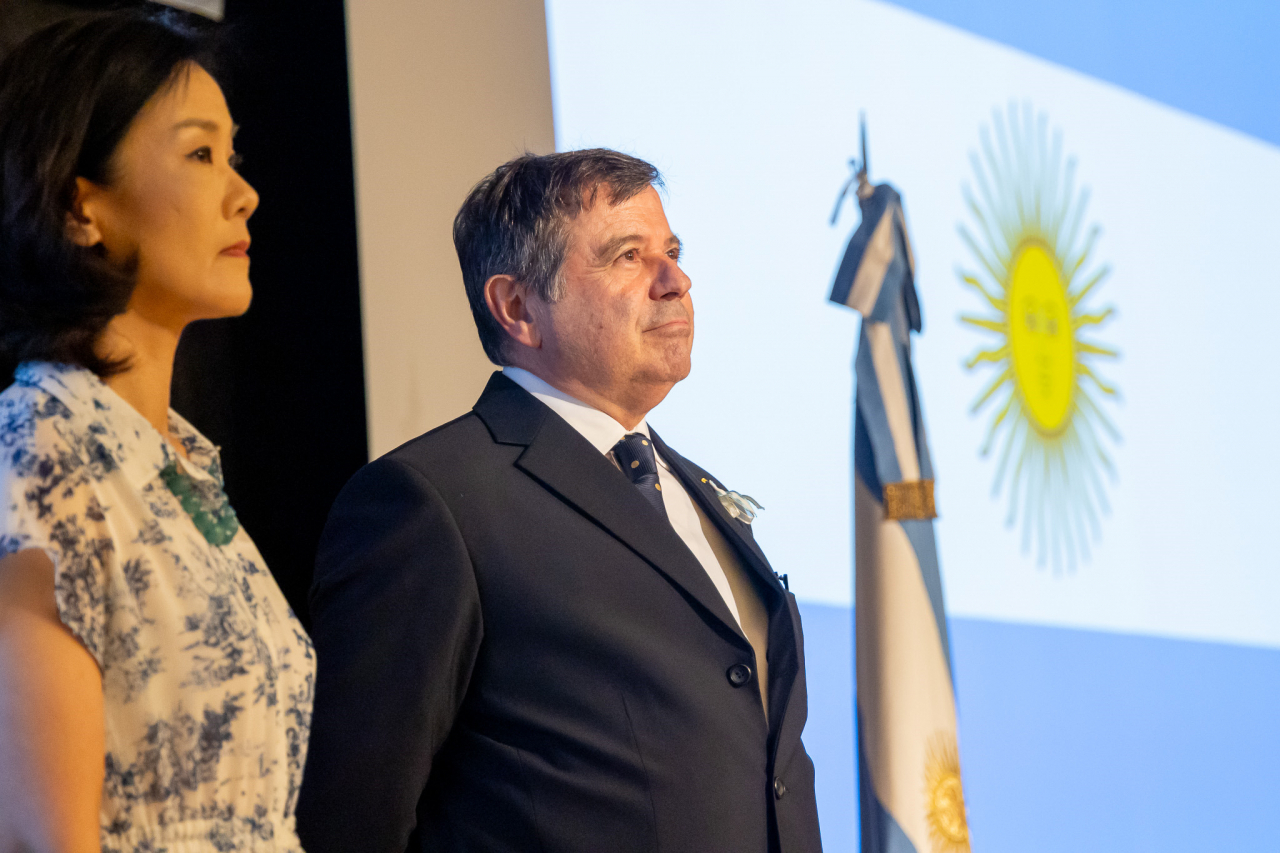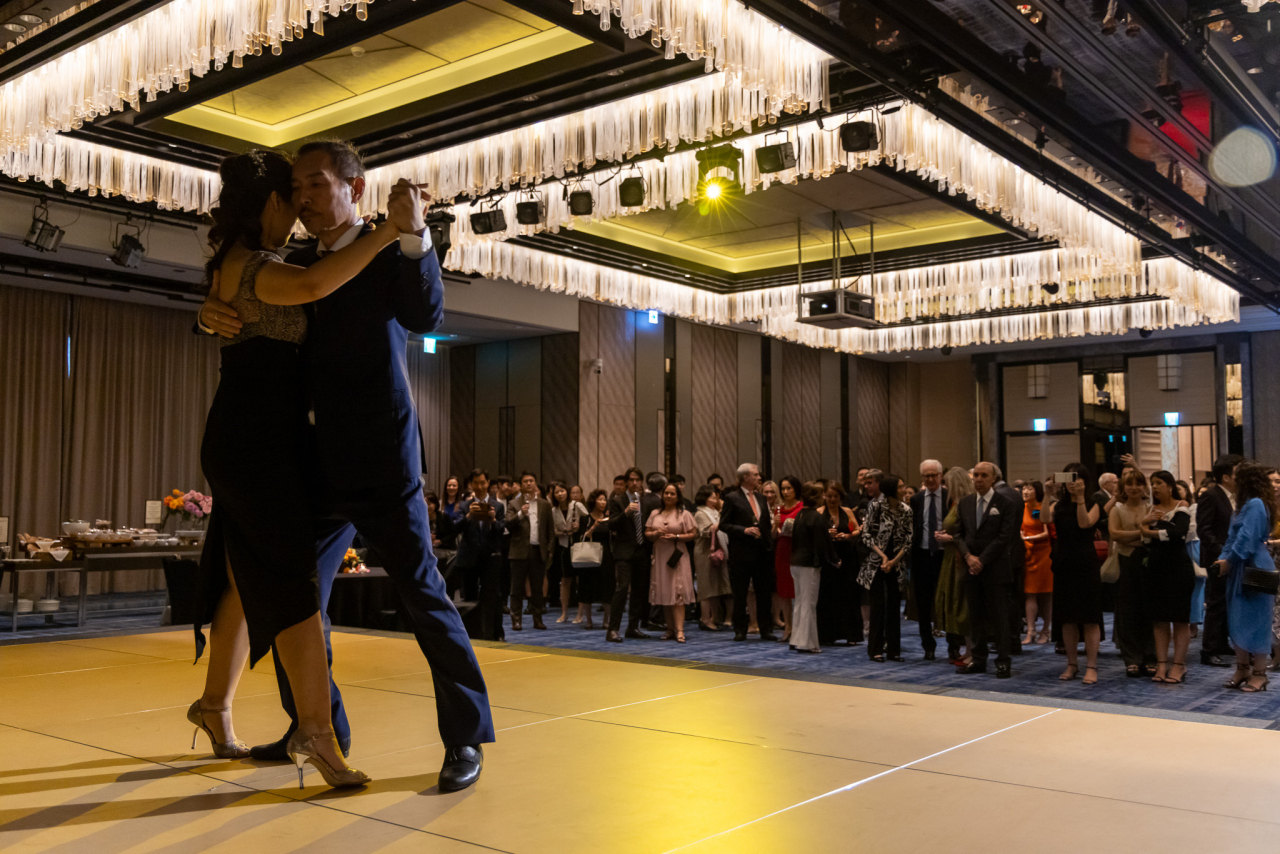Argentina reiterates climate commitment on Independence Day
By Sanjay KumarPublished : July 11, 2023 - 13:43

On the occasion of its 207th Independence Day this year, Argentina stressed the importance of taking action against climate change.
Argentina celebrates Independence Day every year on July 9 to commemorate its declaration of independence from Spain in 1816.
In Korea, the Embassy of Argentina hosted a reception at Four Seasons Hotel Seoul on July 6 to mark the celebrations.
Delivering remarks at the event, Argentine Ambassador to Korea Alfredo Carlos Bascou highlighted the need for continuous collaborative efforts from the international community to address climate change and promote carbon neutrality.

Bascou emphasized climate change as a complex and multidimensional problem acknowledging its detrimental impact on human life worldwide.
Bascou underlined the significant role of Argentina-Korea cooperation in the global economy, particularly in renewable energy and critical minerals. Bascou referenced recent developments as evidence of Argentina's commitment to combating climate change.
He cited Posco Holdings, Korea's largest steelmaker, that began construction of a lithium brine factory in the Salar del Hombre Muerto Salt Lake in northern Argentina, as one of the examples.
With an investment of 1 trillion won ($772 million), the factory expects to produce a maximum capacity of 100,000 metric tons of lithium, a vital component in renewable energy technologies, by 2028.




















